In just 48 hours, three minors walked into a Child Welfare Committee (CWC) office in Sikkim. They exposed a terrifying pattern of betrayal by those they trusted most. Between June 6 and June 7, 2025, cases emerged in Soreng and Namchi districts involving a 14-year-old assaulted by her uncle, a 17-year-old impregnated by her employer, and another minor abused by a man she called “brother.” What tied these cases together? Each perpetrator was someone the victim knew, relied on, or lived with; a grim reality mirrored in national data showing that 93% of child sexual abuse cases in India involve known offenders.
This investigative piece examines how Sikkim’s CWC became the critical link in breaking these cases, the systemic gaps it revealed, and the urgent reforms needed to protect India’s children.
Case Snapshots: Trauma, Courage, and Systemic Entry Points
Case 1: The Uncle’s Betrayal (Soreng District)
On June 6, a 14-year-old girl was brought before the Child Welfare Committee (CWC) in Soreng. During questioning, she disclosed that her uncle, Santosh Chettri (26), had been assaulting her since she was 12. The abuse occurred monthly at locations like the Tiger Statue in R*, where he lured her under pretences. Police registered an FIR under Sections 4 and 8 of the POCSO Act (penetrative sexual assault and its attempt), leading to Chettri’s arrest.
Key Insight: The victim’s delayed disclosure, common in familial abuse cases, highlights how fear and dependency silence children.
Case 2: The Employer’s Exploitation (Namchi District)
A day later, a 17-year-old girl was found six months pregnant. She revealed that Basant Biswakarma (28), her employer at a Jorethang restaurant, had assaulted her repeatedly between September and November 2024. FIR No. 16/2025 was filed under POCSO Sections 5J(ii) (custodial rape), 5(L) (gang rape), and 6 (aggravated assault) alongside the Bharatiya Nyaya Sanhita.
Key Insight: Economic vulnerability, common among minors in informal work, often traps victims in cycles of abuse.
Case 3: The “Brother’s” Deception (Kaluk, Soreng)
The same day, another minor reported being assaulted by Md. Aris (20), a family acquaintance she trusted. The crime occurred on June 3 but went unreported due to fear. Police acted swiftly, arresting Aris under POCSO Sections 3 and 4(2)
Pattern Alert: All three cases involved perpetrators exploiting trust, a trend corroborated by the National Crime Records Bureau (NCRB), which notes that 70% of POCSO cases involve relatives or acquaintances.
The CWC Playbook: How Sikkim’s Committee Broke the Cycle
1. Trauma-Informed Protocols
The CWC’s child-friendly spaces and trained interviewers enabled victims to speak freely. Unlike police stations, which are often intimidating for minors, the CWC’s approach aligns with Supreme Court mandates for victim-sensitive procedures.
2. Rapid Multi-Agency Response
Within hours of disclosures:
- Medical exams were conducted (critical for DNA evidence, as seen in the Baramulla case, where forensic proof secured convictions).
- Police filed FIRs without delay, avoiding lapses seen in states like Uttar Pradesh, where 15-day delays derail cases.
3. Legal Leverage
The CWC’s authority under the Juvenile Justice Act 2015 allowed it to bypass family cover-ups, a hurdle in rural areas where abuse is often suppressed to “protect honour”.
Systemic Flaws Exposed: Beyond the Headlines
1. Geographic Hotspots
- Public spaces, such as the Tiger Statue (Case 1) and private workplaces (Case 2), emerged as high-risk zones.
- Solution: Kerala’s model of “Safe Village” programs, where communities monitor such spots, could be replicated.
2. Legal Loopholes
- Delayed reporting (Case 2’s 6-month pregnancy) complicates evidence collection.
- Inconsistent sentencing: While Sikkim’s accused face trial, other states see POCSO misuse in consensual teen cases, prompting calls for reform.
3. Infrastructure Gaps
- Sikkim lacks dedicated POCSO courts, unlike Tamil Nadu’s fast-track systems that cut trial times by 40%.
- No victim shelters post-disclosure force survivors back to risky environments.
Solutions Framework: Protecting Sikkim’s Children
1. Legal Reforms
- Fast-track courts: Modelled on UP’s 20-year conviction rate for POCSO cases.
- CWC training: Expand forensic interviewing skills to match DNA-led breakthroughs like Baramulla’s.
2. Community Mobilisation
- School programs: Teach “safe touch” and reporting, endorsed by the Supreme Court’s 2025 push for sex ed.
- Village committees: Empower locals to flag risks, as seen in Project Safe Childhood (U.S. DOJ’s model).
3. Survivor-Centric Recovery
- State-funded counselling: Missing in all three Sikkim cases, despite SC directives in similar rulings.
- Financial aid: West Bengal’s post-trial support (education, housing) offers a blueprint.
Conclusion: The Unfinished Battle
Sikkim’s CWC demonstrated that systemic intervention can break cycles of abuse, but only if sufficient resources are allocated to support it. As the Supreme Court noted in a landmark 2025 ruling, “The law must protect, not just punish”.
Call to Action:
- Readers: Demand POCSO fast-track courts in Sikkim.
- Policymakers: Fund CWC expansions and survivor scholarships.
- National Impact: Let Sikkim’s story ignite India’s child protection reboot.
Final Fact: Every 15 minutes, a child is sexually abused in India. The time to act is now.

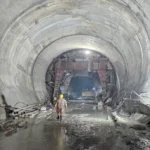
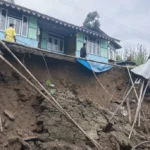
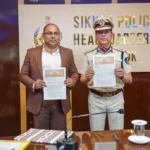
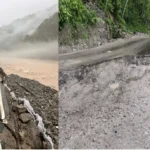
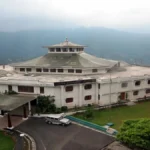
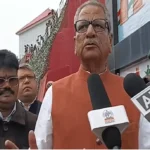




Ihlamurkuyu su kaçak tespiti Profesyonel su kaçağı tespiti, mülkünüzü büyük onarımlardan kurtarabilir. https://roadcosmos.com/author/kacak/
Как оформить разрешение на работу, для трудящихся за границей, обязательно нужно знать.
Работа за границей: что нужно знать о разрешении, подробный гайд.
Требования для получения разрешения на работу, разбираем.
Что делать, если истекает разрешение на работу, по продлению.
Работа для студентов: разрешение на работу, необходимые документы.
Частые ошибки при оформлении разрешения на работу, полезная информация.
Как получить разрешение на работу за границей: международный опыт, различия.
Документы для получения разрешения на работу, ознакомьтесь документы.
Причины отказа в получении разрешения, важные советы.
Права работника с разрешением на работу, полный обзор.
Сроки получения разрешения на работу, что нужно знать.
Как фрилансеру получить разрешение на работу, основные моменты.
Где узнать о готовности разрешения на работу, пошаговая инструкция.
Специальные условия для родителей-одиночек, рекомендации.
Как подготовиться к интервью за разрешение на работу, все нюансы.
Что нужно знать о налогах при получении разрешения на работу, важные аспекты.
Как получить разрешение на работу инвалидам, лучшие практики.
Оплата услуг по получению разрешения на работу, полезные советы.
Переезд за границу с разрешением на работу, планирование.
Особенности получения разрешения на работу в кризис, что учитывать.
как получить разрешение на работу в россии [url=https://oformleniernr.ru/#как-получить-разрешение-на-работу-в-россии]как получить разрешение на работу в россии[/url] .